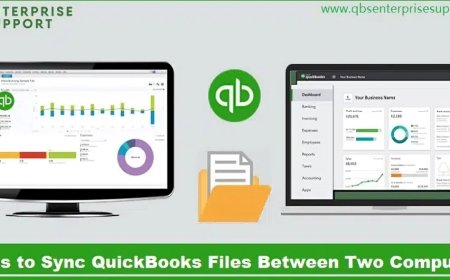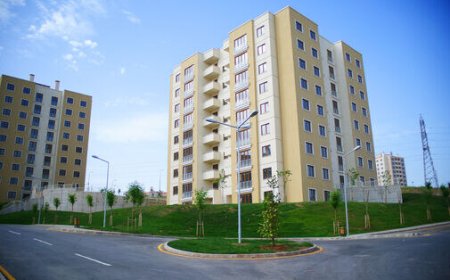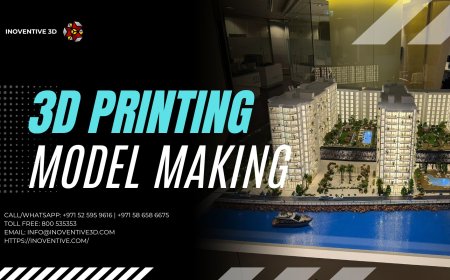An In-Depth Look at ERP System Implementation and Growth in Saudi Arabia
In today’s rapidly evolving digital landscape, businesses face constant pressure to enhance productivity, reduce costs, and stay competitive. At the center of this transformation lies the ERP system — a powerful software solution designed to unify business operations, optimize resources, and provide real-time insights.

Introduction
In todays rapidly evolving digital landscape, businesses face constant pressure to enhance productivity, reduce costs, and stay competitive. At the center of this transformation lies the ERP system a powerful software solution designed to unify business operations, optimize resources, and provide real-time insights.
From manufacturing to retail, enterprises globally have embraced ERP platforms to streamline everything from accounting to inventory management. In this blog, we dive deep into what an ERP system is, how it functions, and more importantly, the rise of the ERP system in Saudi Arabia, where digital transformation has become a national priority under Vision 2030.
What is an ERP System?
Definition and Core Functionality
ERP (Enterprise Resource Planning) is a type of software that integrates various core business processes into one unified system. It includes modules for:
-
Finance and Accounting
-
Human Resources
-
Supply Chain Management
-
Manufacturing
-
Sales and Customer Relationship Management (CRM)
-
Procurement
These modules work together on a central platform, allowing real-time data sharing across departments, reducing redundancy, and improving efficiency.
Key Features of ERP Systems
-
Centralized Database: One source of truth for all departments.
-
Modular Structure: Choose what you need, scale as you grow.
-
Automation: Streamlines repetitive tasks and reduces human error.
-
Real-Time Reporting: Facilitates better decision-making.
-
Customizability: Can be tailored to business size, industry, and workflow.
Importance of ERP Systems in Todays Business
Boosting Efficiency
Manual processes are time-consuming and error-prone. An ERP system automates tasks like payroll, procurement, and inventory control, freeing employees to focus on high-value activities.
Enhancing Data Accuracy and Reporting
With all departments working on the same system, businesses gain access to real-time, accurate data that helps with strategic planning and financial forecasting.
Better Compliance and Security
ERP systems help businesses comply with industry regulations by tracking changes and storing data securely. Many offer built-in compliance features that are crucial in heavily regulated industries like finance and healthcare.
Scalability
Whether you're a startup or a multinational corporation, ERP systems grow with your business. Cloud-based ERP platforms especially offer flexibility in scaling resources.
Rise of ERP System in Saudi Arabia
Vision 2030 and Digital Transformation
Saudi Arabias Vision 2030 has placed technology adoption at the heart of its national agenda. Businesses are encouraged to embrace digital tools to enhance efficiency and global competitiveness. The ERP system in Saudi Arabia is now viewed as a cornerstone of this transformation.
Government Initiatives Driving ERP Adoption
-
The National Transformation Program (NTP): Aims to digitize government and private sector operations.
-
GOSI and ZATCA Integrations: ERP systems help businesses stay compliant with tax (e-invoicing) and social insurance regulations.
-
Support for SMEs: Through entities like Monshaat, small and medium enterprises receive financial and technical assistance to implement ERP systems.
ERP System in Saudi Arabia: Key Industries
1. Manufacturing
Saudi manufacturers are turning to ERP systems to:
-
Track raw material usage
-
Improve production planning
-
Reduce downtime
-
Manage warehouses efficiently
2. Retail and E-commerce
With rapid growth in online shopping, retailers use ERP to:
-
Sync online and offline inventory
-
Analyze customer behavior
-
Streamline logistics and delivery
3. Healthcare
Hospitals and clinics implement ERP systems for:
-
Patient record management
-
Scheduling and staffing
-
Procurement of medical supplies
-
Financial tracking
4. Construction and Real Estate
ERP helps manage:
-
Project costs
-
Contractor payroll
-
Compliance documentation
-
Material procurement
Popular ERP Systems in Saudi Arabia
1. SAP
A global leader in enterprise software, SAP ERP is widely adopted by large Saudi corporations and government entities.
2. Oracle NetSuite
Cloud-based and highly scalable, NetSuite is favored by growing companies.
3. Microsoft Dynamics 365
Well-integrated with other Microsoft tools, this system is popular among mid-sized businesses.
4. Odoo
An open-source option, Odoo ERP is affordable and modular, making it ideal for SMEs in Saudi Arabia.
ERP System Implementation: Step-by-Step Guide
1. Needs Assessment
Understand what your business requires. Identify pain points and growth goals.
2. Vendor Selection
Choose a vendor that matches your needs, budget, and industry.
3. Customization
Tailor the system according to your workflows and user roles.
4. Data Migration
Clean and migrate legacy data into the new ERP system.
5. Training
Ensure all users are trained to navigate the new system efficiently.
6. Go-Live and Support
Once deployed, keep monitoring performance and ensure support mechanisms are in place.
Challenges in ERP System Adoption
1. High Initial Costs
Especially for on-premise systems, ERP implementation can be costly. However, ROI is often high.
2. Resistance to Change
Employees may resist transitioning to a new system. Adequate training and change management are crucial.
3. Data Migration Issues
Poor data quality or compatibility can lead to migration problems.
4. Security Concerns
Data breaches or leaks are a risk. Opt for vendors with strong cybersecurity protocols.
Future Trends in ERP Systems in Saudi Arabia
1. AI and Machine Learning Integration
AI-powered ERP will forecast trends, automate tasks, and provide predictive insights.
2. IoT Connectivity
ERP systems will integrate with IoT devices for real-time equipment monitoring in industries like manufacturing and oil & gas.
3. Mobile ERP Access
Smartphone-friendly ERP platforms will empower remote and field-based workers.
4. Blockchain in ERP
For industries like finance and supply chain, blockchain will enhance transparency and reduce fraud.
ERP System in Saudi Arabia: Regional Adoption
Riyadh The Capital of ERP Innovation
Government ministries and large enterprises in Riyadh lead the way in ERP adoption.
Jeddah Commercial Hub Integration
Retailers, healthcare providers, and shipping companies use ERP to handle complex logistics.
Dammam Industrial Sector Transformation
Manufacturers and construction firms in the Eastern Province use ERP for cost control and operational visibility.
Conclusion
The ERP system is more than a tool its a business transformation catalyst. As Saudi Arabia continues to modernize and digitize its economy under Vision 2030, the ERP system in Saudi Arabia is becoming an essential asset across sectors. Whether youre a small business or a corporate giant, embracing ERP ensures streamlined operations, better decisions, and sustainable growth.
FAQs
1. What is the best ERP system for small businesses in Saudi Arabia?
Odoo and Microsoft Dynamics 365 are popular among SMEs due to their flexibility and affordability.
2. Is ERP required for government compliance in Saudi Arabia?
Yes, many ERP systems help ensure compliance with Saudi regulations such as e-invoicing (ZATCA), VAT, and GOSI.
3. How long does it take to implement an ERP system?
Implementation can take from a few weeks (for cloud systems) to several months, depending on the complexity.
4. Are there cloud-based ERP systems available in Saudi Arabia?
Yes, options like Oracle NetSuite, SAP Business One, and Microsoft Dynamics 365 offer cloud solutions.
5. How much does an ERP system cost in Saudi Arabia?
Costs vary based on system type, user licenses, and customization but can start from SAR 30,000 for basic systems.

































